#mental health education
Text
ASPD: The Desire for and Run from Intimacy
This post will only contain my personal opinion and experience. It may not be applicable to all other people with ASPD and may likewise be relatable to people who do not have it.
I am only going to be talking about emotional intimacy, but this post is definitely also applicable to the other type of intimacy!
I'll make myself pretty vulnerable in this post, by discussing my personal experience, so you better not make me regret that!
Abbreviations:
ASPD = Antisocial Personality Disorder
ASPD is a disability caused by prolonged childhood trauma (with many possible variations), that develops in order to protect the brain from said trauma, or rather to help the brain deal with it in some way!
While the consequences of this in the context of intimacy, look different for every person with ASPD, many do report: a difficulty with developing bonds, having problems trusting people & giving away control, losing feelings for people quickly and abruptly/getting "bored" of people, responding extremely to arguments, having problems dealing with peoples emotions/ problems with being close to people etc.
This may be due to a variety of factors, but does often tie back to having no or few positive experiences with intimacy, having not learned how to exist in relationships properly/a lack of being socialized, not having the necessary prosocial emotions and mechanisms to deal with it and other similar things.
While this causes some people with ASPD to develop a brain, that does not have a need for emotional intimacy at all, others develop a brain, that craves the emotional intimacy it has been denied, but which will also fight said intimacy at every turn.
Thats as much generalized info as I can give you, as the exact representation of this is highly individual, but I will offer my personal experience on the following slides!
What you need to know is that I was accidentally neglected for huge parts of my childhood and teens and did not get my emotional and social needs met most of the time, while also knowing that my parents were theoretically capable of that, as they were giving everything I lacked to my sibling.
This caused me to grow up with a burning desire for intimacy, while being disappointed by people time and time again, failing to actually develop the things needed to experience this intimacy and partially growing to resent it and viewing it as "weak" and "bad".
Ever since then I have been stuck in what I like to call the "ASPD stages of running". Theres different points in getting close to people (in any nature of a relationship), that'll send me running and feeling like I am "weak" for wanting it, or as if being close to people is the worst thing that could happen.
The stages (simply put) are:
1. Desiring/Daydreaming about my dream relationship
2. Looking at peoples relationships/Looking at people with the intent of getting closer to them
3. Talking to people (online or irl)
4. Getting closer / being friends with people
5. Being friends with people for longer
Optionally:
6. Getting so close that a romantic relationship may happen
7. The moment of getting in the relationship / the days after
8. Being in the relationship for a bit
At any of those stages, I'll very likely have one or multiple moments where my ASPD will try to get the better of me and will try to convince me to just run away, drop contact and never talk about it again. Even just admitting to this and talking about it is hard as fuck, because it is so deeply ingrained in my brain to see emotional intimacy as a weak and dangerous thing.
What this will look like exactly really depends on the person and situation, but things that have happened in the past were:
• blocking the person and everyone I am friends with and pretending I am no longer alive
• my brain fixating on their faults in order to give me a good reason to hate them so I don't get closer to them and can hold them at arms length
• responding less often/more dryly or ignoring messages entirely
• not replicating the energy of the conversation/relationship
• staging an incident so I ruin the relationship
• running at the first signs of a disagreement
• avoiding people when they are emotional
• feeling uncomfortable around people as a whole => isolating
• beating myself up about letting it happen again
• impulsively bumping the relationship to another stage, just to immediately regret it (in a "fuck that has consequences" way)
• shutting off all my emotions, dissociate or otherwise make sure to stop the feelings (or just lose them automatically)
To put it in a shorter and more simple way, I'll usually either get the fuck outta there, or make sure to change the relationship/my personal position in the relationship to a more comfortable and less vulnerable and intimate level. This may also just look like me shutting off, becoming distant, or seeming mad, when all I am is overwhelmed by the intimacy and grossed out that I actually need and desire that.
As you can possibly imagine, that is not the most useful thing, as it causes issues in relationships, cuts friendships short and makes dealing with people a lot harder!
The most frustrating thing about this for me though is, that even if the most perfect friend or partner came along and even if the relationship would work at first, I am very very likely to crash it against the wall, simply because my brain cannot handle having the things, that it needs and desires.
It desires a hug and runs from the one who offers it.
It needs help and bites the hand that does.
It needs love and gets grossed out by whoever offers it.
It wants attention and can't handle it when it gets it.
It wants gifts, but doesnt know what to do when it gets them.
Whatever it wants, it can't have, so it keeps wanting, keeps yearning, keeps desiring and has to watch itself be unable to accept any of it.
And if that sounds painful, thats because it is.
Its a vicious kind of pain when you have to watch yourself ruin yet another thing, because your brain can't handle it, while you scream at it in frustration to get its act together, because it also is everything you desperately need.
ASPD sucks when it comes to intimacy and it especially sucks when it comes to talking about it, or being honest about these problems. It developed to protect me from being too "weak" to deal with the trauma and now its practically preventing me from showing any "weakness" or seeking out what previously hurt me. Which wouldn't be this bad, if I didn't still have this kid in me that just wants to be loved and daydreams about all the things, the ASPD hates.
When your shell disagrees with your core and you're not strong enough yet to break your shell, what does that really leave you with, other than curling up into a spiky ball and letting the shell do its job? I know I still need the protection, but I wish it wasn't actively preventing me from learning to live without it.
First posted on my instagram (same @)
#actually aspd#aspd#mental health education#antisocial personality disorder#mental health#antisocial#aspd awareness#aspd feels#aspd thoughts#aspd things#aspd mood#intimacy
182 notes
·
View notes
Text
As someone with BPD, I'd just like to try to clear some things up.
People with BPD do/are:
DO have trouble regulating their emotions and their impulses
DO struggle with healthy relationships and attachments to others
DO have an intense fear of abandonment and will do whatever it takes to avoid being abandoned
DO have an unstable sense of self and their identity
DO suffer from chronic self-harming and/or suicidal behaviours
DO experience feelings of emptiness or hollowness
DO have erratic moods and emotions that can change drastically from moment to moment
DO frequently engage in impulsive behaviours
ARE able to feel real love towards other people
ARE able to be treated
ARE able to live happy, well-rounded lives
ARE able to form healthy relationships
DO deserve respect
DO deserve support
DO deserve love
People with BPD do/are not:
DO NOT act the way they do for attention (the self-destructive behaviours people with BPD sometimes engage in stems from a need to cope with our emotions and thoughts, not out of attention-seeking)
ARE NOT intentionally or maliciously manipulative (manipulative behaviour is pre-planned and intentional. People with BPD engage in their behaviours as a reaction to their intense emotions. While we may act in ways that attempt to control how others behave, we are typically doing so to try to ease or prevent our own emotional pain, not to hurt others.)
ARE NOT dangerous or violent (people with BPD are much more likely to hurt themselves than others)
HAVE NOT all experienced childhood trauma (many people with BPD have experienced childhood trauma, but many have not. Childhood trauma is a risk factor, not a cause.)
ARE NOT all AFAB (while a larger percentage of those diagnosed with BPD are assigned female at birth, many of those who are assigned male at birth also suffer from BPD, and some evidence shows that it may be more equally distributed among both sexes)
ARE NOT untreatable (there are lots of treatment options available! DBT is the most common, but there are many other options as well.)
ARE NOT all abusers (abuse is not linked to any one mental illness. People with BPD may struggle to form healthy relationships and this can lead to abusive dynamics, however ANYONE can be abusive regardless of their mental health.)
ARE NOT all the same (BPD is a spectrum and it affects all of us a little bit differently. Not everyone is going to experience it exactly the same as someone else, and it's important to recognize that we're all individuals.)
ARE NOT rare (BPD is actually pretty common. It's estimated that around 1-2% of the population are diagnosed BPD. That's around 156,000,000 people, and that's not even counting those who are undiagnosed.)
ARE NOT horrible, unfeeling monsters (we are literally just people)
ARE NOT unworthy of love (EVERYONE is worthy and deserving of love)
#bpd#actually bpd#borderline personality disorder#mental health#mental health awareness#bpd awareness#mental health education
76 notes
·
View notes
Text
Knowing and admitting you need help is one thing
but knowing what help you need or how to acquire it or where to even start is a whole other thing entirely.
Anyone have any tips or resources for this?
#audhd#cptsd recovery#borderline personality disorder#late diagnosed autistic#actually autistic#neurodiversity#disability resources#mental health resources#adhd resources#bpd help#did osdd#chronic illness#chronic pain#mental health help#mental illness#accessibility#intersectionality#healthcare#mental health education#executive dysfunction#self care#mental health community#autistic community#late diagnosis#unmedicated#living with adhd#adhd autistic#adhd help#adhd problems#adhd community
139 notes
·
View notes
Text
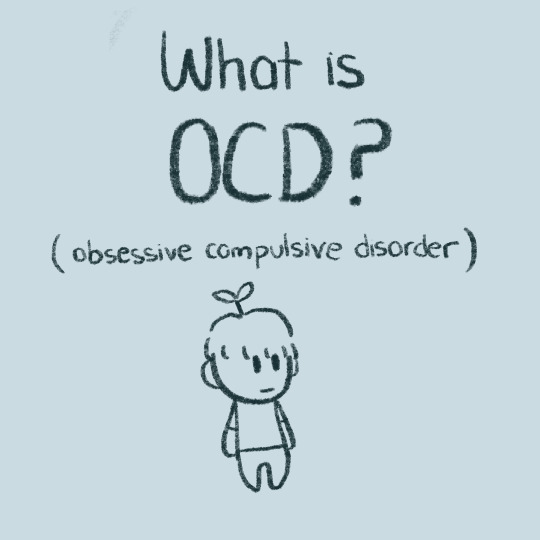

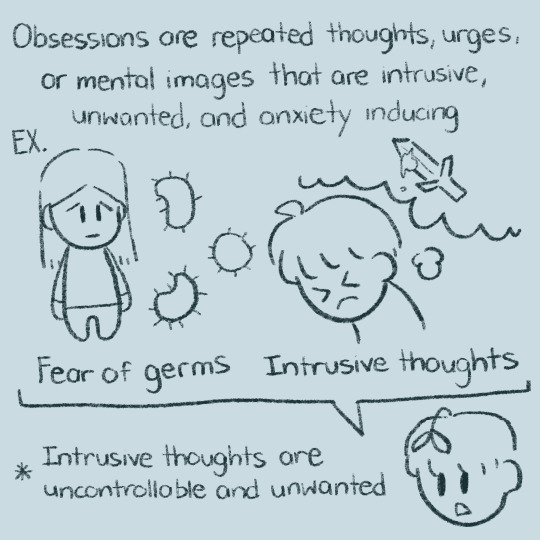

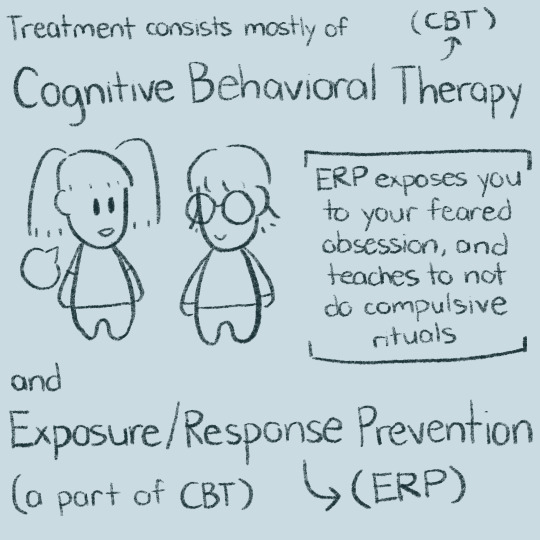

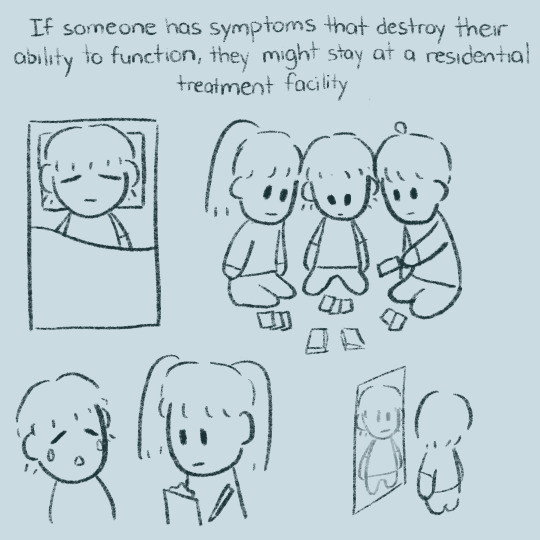
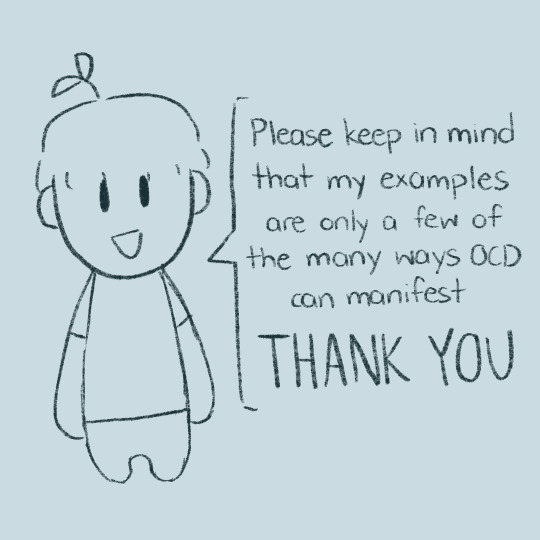
tell me if theres misinformation in here please, i used several sources but i could still be wrong
#ocd#ocd tag#obsessive compulsive disorder#obsessive compulsive behavior#mental health stigma#mental health#art#digital art#digital painting#digital sketch#original comic#mental health comic#anxiety#intrusive thoughts#intrusive thinking#education#mental health education
12 notes
·
View notes
Text
im all for educating children on disorders and health and shit early in life for multiple reasons but partly because when i was a kid i had what i now know was a tic attack wherein i forcefully laughed (so much so that i was purple in the face and choking) and waved my arms for 4+ hours while at a school orientation thing and when i asked my friends what the fuck just happened one was just like bro didnt you know the fae kill people in the most beautiful ways and i just fucking. accepted that as the answer and told zero people about what happened. and when i was diagnosed with tourettes like 3 or 4 years later i was like oh shit so thats what that was
#tourettes#mental health#education#child education#mental health education#neurodivergent#kids will just make shit up if they cant explain things#its just the way shit goes#you gotta tell them what the fuck is up bro#kids#children#tics
23 notes
·
View notes
Text

#sociopath#aspd#sociopathic#socioeconomic#mental health#mental illness#actually mentally ill#positive mental attitude#mentally fucked#mental health support#mental health matters#mental health care#mental health posting#mental health stuff#mental health services#mental health shit#mental health struggles#mental health mention#mental health problems#mental health professionals#mental health positivity#mental health education#mental health empowerment#mental health awareness#mental health advocate#mental health advice#mental health advantages#mental health lifestyle#mental health symptoms#mental health sickness
4 notes
·
View notes
Text
When it comes to parenting the inner child, you will make mistakes. That doesn't mean you are a bad self parent.
Your perfectionism with parenting the inner child to such a high regard and getting upset at yourself for not achieving that goal or not having the right info how to parent yourself is what makes you feel like you are crap at parenting the inner child.
You should feel like your inner child deserves the best self parenting that you may not have gotten. That's great, but I'm not sure it'll be that useful to attack yourself for mistakes in the process of learning how to do that.
You are just highly sensitive towards your inner child's needs. That's not a bad thing. Just don't let mistakes eat at you or make you feel like giving up or self sabotaging. You'll have another chance to improve at. Take breaks as needed. Then come back to it.
#spiritual#spirituality#innerchildhealing#innerchild#self parenting#healing#shadowwork#shadow work#mentalhealth#mental health education
27 notes
·
View notes
Text
There needs to be more common education on mental illnesses, because in middle school my friends and teachers would comment on the fact that my hands were cracked and bleeding because I washed them so much, and I had no words to describe the absolute need I had to wash them constantly.
#personal#ocd#mental health#mental health education#I finally discovered what I had because my parents saw something was obviously wrong with me and did education on it#not everyone is that lucky#rain’s ruminations
6 notes
·
View notes
Text
Early Signs of Schizophrenia and Prevention Strategies!
Schizophrenia, a complex and often misunderstood mental disorder, affects millions of individuals worldwide. It is characterized by a range of symptoms that impact thoughts, emotions, and behavior. While the exact cause of schizophrenia remains elusive, early detection and intervention are crucial for managing the condition effectively. In this article, we delve into the early signs of…
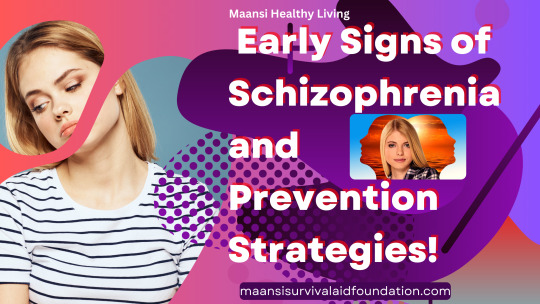
View On WordPress
#Cognitive health#Early detection#Early intervention#Mental health awareness#Mental health education#Mental health prevention#Mental health promotion#Mental health support#Mental wellness strategies#Preventing schizophrenia#Psychiatric disorders#Psychosis signs#Schizophrenia awareness#Schizophrenia risk factors#Schizophrenia symptoms
2 notes
·
View notes
Text
If you knew
how to Love...
You would never feel the need to
say an unnurtured word, statement
or, ask questions
based on self- entertaing curiosity
But always because you are concerned.
🪶 Armaan. 🧭
Remember Darling, when you are connecting with another Life.
Tip for this writing 📮♥️
#love#love quotes#love quote tumblr#life quotes#how to talk to people#love quote life quotes#inspiring quotes#romantic#spilled ink#love poetry#poetry#mental health#mental illness#positive mental attitude#writer#writerblr#mental health support#mental health education#how to talk to anyone#how to love#writers on tumblr#self development#self help#self reflection#self love#self improvement#selfishness#self care#donate if you can
1 note
·
View note
Text
Personality Disorders count as Disabilities
This post only contains my personal interpretation of official definitions. It may not represent the opinion of everyone who has a personality disorder and may likewise have people agreeing who do not have one.
I will use my own personality disorder as an example in the end, but would like you to know, that the same applies to all other personality disorders, even if I do not name them.
Abbreviations:
DSM-5 = Diagnostic and Statistic Mannual of Mental Disorders 5th Edition
PD/PDs = Personality Disorder/Disorders
ASPD = Antisocial Personality Disorder
In order to make this easier for everyone, I'll provide you with the definitions for a personality disorder and the one for a disability.
According to the DSM-5 a personality disorder is "An enduring pattern of inner experience and behavior that deviates markedly from the expectations of the individual’s culture" marked by at least two of the following: cognition, affectivity, interpersonal functioning and/or impulse control. It further specifies that "the enduring pattern is inflexible and pervasive across a broad range of personal and social situations", "leads to clinically significant distress or impairment in social, occupational, or other important areas of functioning", "is stable and of long duration" and is not better explained by other conditions of mental or physical nature.
The definition for disability will vary depending on ones country, but does have an overall pattern. The US definition from the ADA (Americans with Disabilities Act) defines it as "a person who has a physical or mental impairment that substantially limits one or more major life activities, a person who has a history or record of such an impairment, or a person who is perceived by others as having such an impairment"
The European Disability Policy (from the official european parliament) says: "Persons with disabilities include those who have long-term physical, mental, intellectual or sensory impairments which in interaction with various barriers may hinder their full and effective participation in society on an equal basis with others".
These disability definitions seem to point towards a longterm impairment in functioning and the management of daily life over a wide variety of contexts.
If it is not clear to you yet how a personality disorder may fit the definition of a disability, let me explain:
A disability has to impair you in a way, that prevents you from interacting with society/life on an equal basis with others. This can look like having difficulties in the social area, not having the same abilities when it comes to working/going to school/university, not being able to do basic activities of daily living on the same level as others, not being able to manage more complex activities of daily living such as finances, insurance, driving and the like on the same level as others, having a difference in reaction/control, having a difference in the ability to perceive reality as the majority does and more. Basically every single way in which your ability deviates from that of the majority of people and impairs you in such a way (whether visibly or invisibly) counts as disabled and the condition that causes it counts as a disability.
Now personality disorders, as mentioned in the definition from the DSM-5 absolutely impair your ability to function in a variety of contexts and very clearly are stated as deviating from that which is expected and common in ones culture. Which is a fancy way of saying "you're different than the majority of people around you". Personality disorders can impair your ability to work/go to school/uni, can impair you in the social area, can impair your ability to do basic and complex activities of daily living and can cause a difference in reaction/control and perceiving of reality.
How a personality disorder impacts a person will be highly individual, but it will inherently impair your ability to function on an equal basis to other people. It will inherently cause personal distress in some way and will be a longterm stable impairment covering a variety of contexts, therefore absolutely fitting the definition of a disability.
Claiming that personality disorders are not a disability is therefore kinda wrong, tho it is up to the individual whether they want to see themselves/ identify as disabled or not. No one will force you to use the word, but the definition of a disability does absolutely include personality disorders.
In some countries you are even able to ask for accommodations to be made and can be declared unfit to work, unfit for military service/jury duty, can be eligible for disability pay/help services and more. This would likely not be the case if PDs would not count as disabilities.
My ASPD is a disability, as it absolutely disables me when it comes to socializing, having relationships, living alone, working/uni/school, doing complex activities of daily living, has an impact on how I perceive reality (tho not caused by it, just influenced), has an impact on my reactions/control/emotional regulation/affectivity etc. I require treatment to teach me skills to lessen the impact of it slightly and give me tools and knowledge on the accommodations I may need. I cannot interact with society/the world on an equal basis to the majority of people who do not have ASPD. I am impaired, I have difficulties, I am disabled.
(first uploaded to my instagram, same username)
#actually aspd#aspd#antisocial personality disorder#antisocial#disability#disabled#disabilties#disability awareness#mental health education#mental health#personality disorder#bpd#npd#hpd#szpd#stpd#ppd#dpd#avpd#ocpd
100 notes
·
View notes
Note
as someone WITHOUT DID i'd like to ask, whats the general consensus on people learning more about DID? i remember a lot of people being upset because (and i apologize if im wrong) a lot of people started to fake DID and it caused a lot of harm.. has any of that subsided? much love from someone with BPD
I don't mind anyone learning about it! I'm happy to educate the facts about it and what our personal experience is like!
The problem to me comes when I get asks or messages giving me a chunk of information on what the person thinks is relevant and asking me to tell them whether they have DID or something else. This is because we aren't psychologists and cannot give a diagnosis.
Yes, faking DID/OSDD is still a thing unfortunately, but just like diagnosing someone over the internet, I don't have a right to fakeclaim them either, as with both I don't have the knowledge or skills to make a good call. All I can do for both is send them to articles of real research or to encourage them to go to therapy and find out from someone much more knowledgeable that can help.
The bigger threat I feel now more than fakeclaiming is those who claim to be a system without trauma, and try to demedicalize it. This can trap naive systems into not getting help for their trauma and at worst has been used to gaslight and manipulate systems, creating more trauma.
I appreciate your polite ask and definitely encourage education on the topic! I'm also always open to learning more about other disorders myself, as it is an interest.
-☁️+🍵
#meet mosaic system#actuallydid#did#actually multiple#did system#d i d#actuallymultiple#actually traumagenic#actuallytraumatized#actually did#dissociative identity disorder#mental health education#pro recovery#anti endogenic
25 notes
·
View notes
Text
We really can’t be normal about autistic people huh

“can exacerbate autism features” “more severe repetitive behaviors” “tougher time making friends” you mean unmasking?? Yeah masking is fucking exhausting and all-consuming, of course its harder without sleep?? Sleepy allistics also loose ability to give 110%? Sleepy allistics also would do worse on tests of intelligence? What the fuck
Also in case it went unnoticed, the source is called spectrum news dot org so please remember not to mistake name or branding for credibility <3
#thank you for coming to my ted talk#allistics#autistic rant#autistic stuff#audhd#adhd autistic#actually autistic#mental health education#neurodivergence#neurodiversity#autistic things#autistic experiences#unmasking#autistic masking#masking#unmasking autism#autistic adult#autistic children#autistic child#late diagnosed autistic#self diagnosed autism#self diagnosed autistic#autistic stimming#autistic communication#autistic community#autistic representation#autism representation#neurodivergent representation#autism spectrum#autism spectrum disorder
75 notes
·
View notes
Text
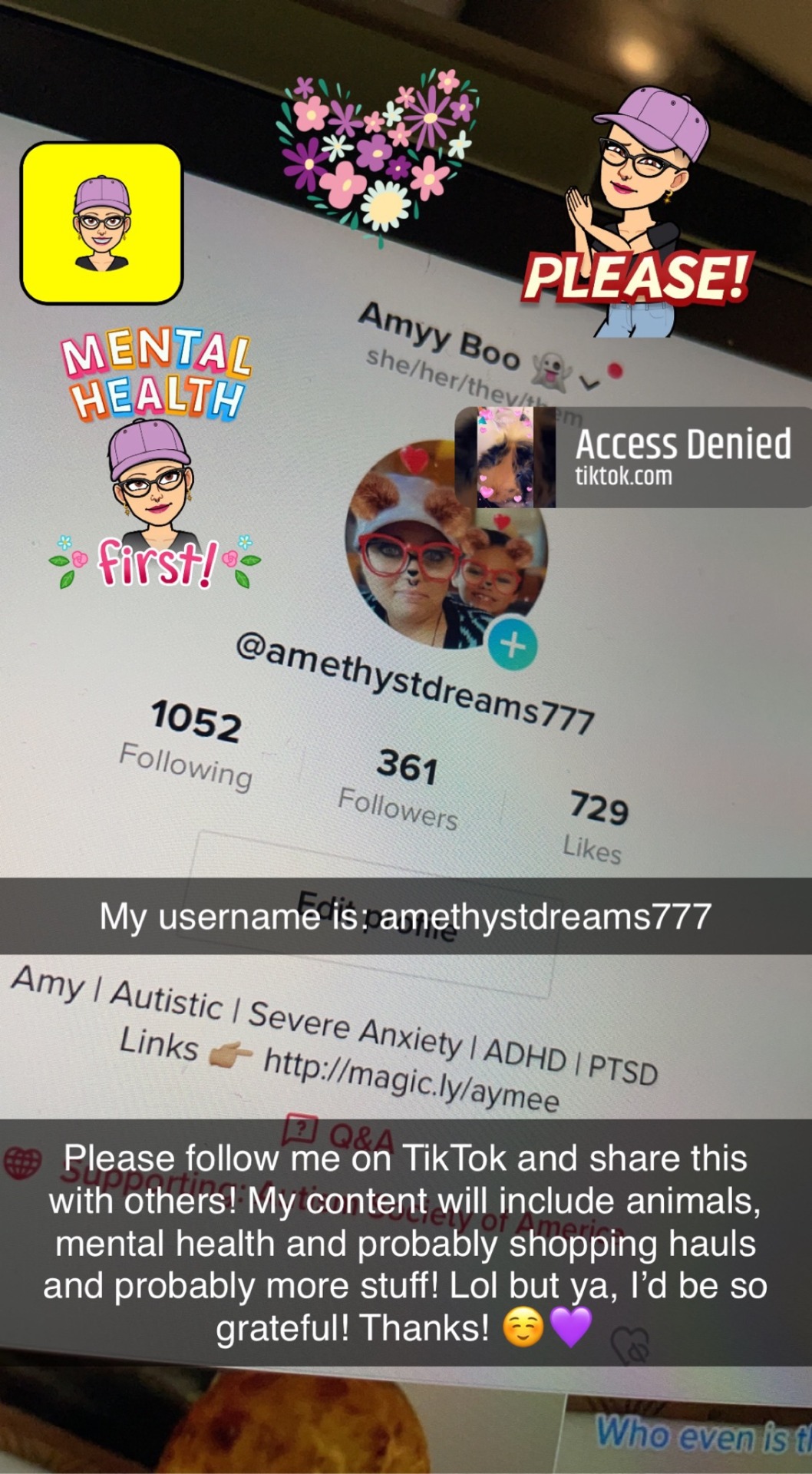
Please reblog!! 🥰💛
#tiktok#mental health awareness#positiveenergy#motivation#mental wellbeing#mentalwellness#positivity#positive vibes#mental health#animals#exotic pets#guinea pig#hamster#cats#kitty#mentalheathawareness#mental health education#lizards#fish#positivemindset#trending#viral video#make this go viral
4 notes
·
View notes
Text
Mental Health Education: The Knowledge Should Be Accessible in School
Mental health education is essential in school curriculum. Mental health issues among students are alarmingly high, affecting academic performance and overall well-being. Incorporating mental health education empowers students to recognize signs of distress and manage stress effectively. Mental health education promotes empathy, reduces stigma, and encourages students to support one another. Mental health education promotes empathy, reduces stigma, and encourages students to support one another. The stigma revolving around mental health has constantly stopped many from seeking help as well as trying to help others who they see are in need of help. If we were able to integrate mental health awareness at a younger age as the students grow and begin to face high volumes of stress and anxiety or any other forms of mental health issues they would be far more prepared to handle these situations and better themselves both mentally as well as physically. Adding mental health to the school doesn't entirely mean their needs to be a whole course that all students are forced to take, simply adding a couple lessons revolving around what mental health is as well as where and how to get help would be beneficial. It would open the door for the students to start looking into ways to talk to their parents or guardians or even just a trusted adult about everything they may be feeling. Some statistics I looked into for this are present below. The provided statistics would show you the large group of individuals who would truly benefit from being taught a positive outlet for their mental health at a young age.
Adolescent Mental Health (World Health Organization):
Globally, one in seven 10-19-year-olds experiences a mental disorder, accounting for 13% of the global burden of disease in this age group.
Depression, anxiety, and behavioral disorders are leading causes of illness and disability among adolescents.
Suicide is the fourth leading cause of death among 15-29 year-olds
High School Students (CDC):
Among high school students in 2019:
36.7% reported feeling sad or hopeless.
Nearly 1 in 5 seriously considered attempting suicide.
Approximately 7 in 100,000 children aged 10–19 years died by suicide in 2018 and 2019
Youth Data (Mental Health America):
10.6% of youth (over 2.5 million) cope with severe major depression.
State prevalence of youth with severe major depression ranges from 7.3% in the District of Columbia to 14.8% in Wyoming
Figure 1 - Children 5-17 years old who have received any mental health aid such as medications, therapy or counseling, or any form of mental health treatment. United Stated; 2021
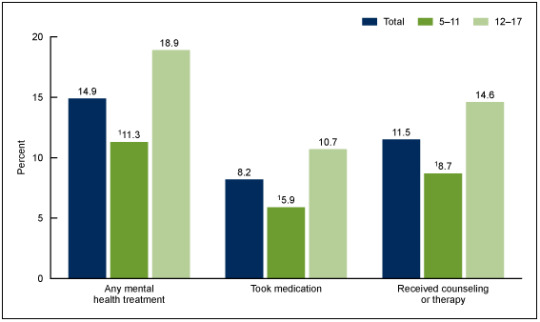
Figure 2 - Children 5-17 years old who have received any mental health aid such as medications, therapy or counseling, or any form of mental health treatment, based on gender. United Stated; 2021
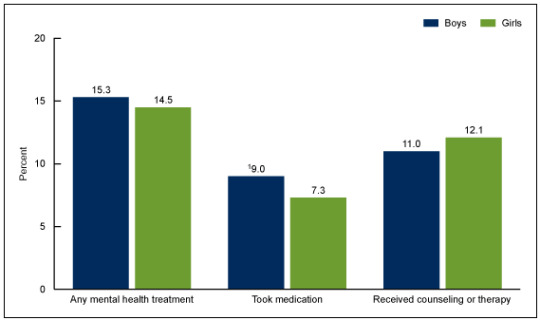
Figure 3 - Children 5-17 years old who have received any mental health aid such as medications, therapy or counseling, or any form of mental health treatment, based on race. United Stated; 2021
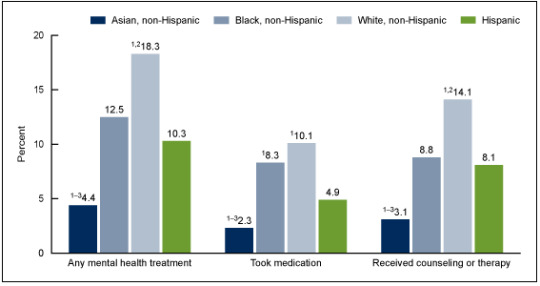
References
Mental Health Organization. (2021, November 17). Mental health of adolescents. https://www.who.int/news-room/fact-sheets/detail/adolescent-mental-health
Zablotsky, Ph D, B., & Ng, A. E. (2023, June). Mental Health Treatment Among Children Aged 5–17 Years: United States, 2021. Center of Disease Control and Prevention. https://www.cdc.gov/nchs/products/databriefs/db472.htm
Mental Health America. (2022). Youth Data 2022. https://www.mhanational.org/issues/2022/mental-health-america-youth-data
0 notes
Text
The importance of mental health and its impact on activity and life
#mental health#health#mental health awareness#mental health tips#how to improve mental health#improve mental health#psychological health#world mental health day#mental health education#[ health#mental health crisis#health psychologist#health psychology#mental health matters#mental health problems#health tips#improving mental health tips#mental health awareness month#healthy habits#psychological disorders#mental health terminology#child mental health
1 note
·
View note